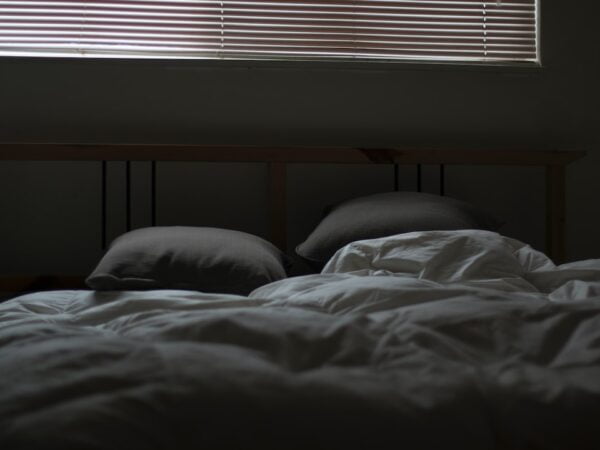
5 Simple Tips for Falling Asleep Faster and Waking Up Refreshed
Sleep is an essential part of our daily lives, yet it is often overlooked and undervalued. Getting enough quality sleep is crucial for our overall health and well-being. It plays a vital role in maintaining a healthy immune system, regulating our mood, improving cognitive function, and promoting physical health. However, in today’s fast-paced world, many people struggle to get the sleep they need. In this article, we will explore various tips and techniques to help you prioritize quality sleep and reap the benefits it offers.
Key Takeaways
- Quality sleep is important for overall health and well-being.
- Creating a sleep-friendly environment and establishing a bedtime routine can improve sleep quality.
- Limiting screen time before bed and exercising regularly can also contribute to better sleep.
- Watching your diet and caffeine intake can impact sleep quality.
- Addressing common sleep disorders and exploring alternative techniques can also improve sleep.
Tip #1: Create a Sleep-Friendly Environment
Creating a sleep-friendly environment is essential for getting a good night’s rest. Your bedroom should be a sanctuary that promotes relaxation and tranquility. Start by ensuring that your bedroom is dark, quiet, and cool. Invest in blackout curtains or blinds to block out any external light sources that may disrupt your sleep. Consider using earplugs or a white noise machine to drown out any unwanted noise.
Comfortable bedding is also crucial for creating a sleep-friendly environment. Choose a mattress and pillows that provide adequate support for your body and promote proper spinal alignment. Opt for breathable fabrics for your sheets and blankets to help regulate your body temperature throughout the night.
Tip #2: Establish a Bedtime Routine
Establishing a consistent bedtime routine can help signal to your body that it is time to wind down and prepare for sleep. A bedtime routine should consist of relaxing activities that promote relaxation and reduce stress. Consider incorporating activities such as reading a book, taking a warm bath, or practicing gentle stretching or yoga.
Avoid engaging in stimulating activities close to bedtime, such as watching intense movies or engaging in vigorous exercise. These activities can make it harder for your body to relax and transition into sleep mode. Instead, focus on calming activities that help you unwind and prepare for restful sleep.
Tip #3: Limit Screen Time Before Bed
| Tip #3: Limit Screen Time Before Bed | |
|---|---|
| Recommended screen time limit before bed: | 1 hour |
| Reasons to limit screen time before bed: | 1. Blue light emitted by screens can disrupt sleep 2. Engaging with stimulating content can make it harder to fall asleep 3. Checking emails or social media can cause stress and anxiety |
| Alternative activities before bed: | 1. Reading a book 2. Taking a warm bath 3. Meditating or practicing relaxation techniques |
The blue light emitted by electronic devices such as smartphones, tablets, and computers can interfere with your body’s natural sleep-wake cycle. Exposure to blue light in the evening can suppress the production of melatonin, a hormone that regulates sleep. This can make it harder for you to fall asleep and stay asleep.
To limit screen time before bed, consider setting a screen curfew. This means avoiding the use of electronic devices at least one hour before bedtime. If you must use electronic devices in the evening, consider using blue light filters or wearing blue light-blocking glasses to minimize the impact on your sleep.
Tip #4: Exercise Regularly
Regular exercise has been shown to improve sleep quality and duration. Engaging in physical activity during the day can help reduce stress and anxiety, promote relaxation, and tire your body out, making it easier to fall asleep at night.
However, it is important to time your exercise appropriately. Exercising too close to bedtime can actually have the opposite effect and make it harder for you to fall asleep. Aim to finish your workout at least a few hours before bed to give your body enough time to wind down and relax.
Tip #5: Watch Your Diet and Caffeine Intake
What you eat and drink can have a significant impact on your sleep quality. Avoid consuming heavy meals close to bedtime, as this can cause discomfort and make it harder for you to fall asleep. Instead, opt for lighter meals that are easier to digest.
Caffeine is a stimulant that can interfere with your ability to fall asleep. It is important to limit your caffeine intake, especially in the afternoon and evening. Be mindful of hidden sources of caffeine, such as chocolate and certain medications.
Common Sleep Disorders and How to Address Them
There are several common sleep disorders that can significantly impact your sleep quality. Insomnia is characterized by difficulty falling asleep or staying asleep. Sleep apnea is a condition in which breathing is repeatedly interrupted during sleep. Restless leg syndrome causes uncomfortable sensations in the legs, leading to an irresistible urge to move them.
If you suspect that you have a sleep disorder, it is important to seek medical treatment. Your healthcare provider can help diagnose and treat the underlying cause of your sleep issues. In some cases, making lifestyle changes, such as improving sleep hygiene or losing weight, can help alleviate symptoms.
The Benefits of Waking Up Refreshed
Getting enough quality sleep has numerous benefits for your overall health and well-being. When you wake up feeling refreshed and well-rested, you are more likely to have improved mood and mental clarity throughout the day. Your productivity and concentration levels are also likely to be higher, allowing you to perform better at work or school.
Quality sleep is also essential for physical health. It helps support a healthy immune system, reduces the risk of chronic conditions such as heart disease and diabetes, and promotes proper hormone regulation. Prioritizing quality sleep can have a profound impact on your overall health and quality of life.
Alternative Techniques for Better Sleep
In addition to the tips mentioned above, there are alternative techniques that can help improve sleep quality. Meditation and mindfulness practices can help calm the mind and promote relaxation before bed. Deep breathing exercises can also be effective in reducing stress and preparing the body for sleep.
Aromatherapy is another technique that can promote better sleep. Certain essential oils, such as lavender and chamomile, have calming properties that can help induce relaxation and improve sleep quality. Consider using a diffuser or applying a few drops of essential oil to your pillow before bed.
Prioritizing Quality Sleep for Better Health
In conclusion, getting enough quality sleep is crucial for our overall health and well-being. By creating a sleep-friendly environment, establishing a bedtime routine, limiting screen time before bed, exercising regularly, and watching our diet and caffeine intake, we can improve our sleep quality and reap the benefits it offers.
It is important to prioritize sleep and make it a non-negotiable part of our daily routine. By implementing the tips and techniques discussed in this article, we can take control of our sleep and improve our overall health and quality of life. So, make sleep a priority and start reaping the benefits of waking up refreshed and rejuvenated each day.
FAQs
What is falling asleep faster?
Falling asleep faster refers to the ability to fall asleep quickly and easily without experiencing any difficulty or delay.
Why is it important to fall asleep faster?
Falling asleep faster is important because it helps to improve the quality of sleep, which in turn has a positive impact on overall health and well-being. It also helps to reduce the risk of sleep disorders and other health problems.
What are some tips for falling asleep faster?
Some tips for falling asleep faster include establishing a regular sleep schedule, avoiding caffeine and alcohol before bedtime, creating a relaxing sleep environment, and practicing relaxation techniques such as deep breathing or meditation.
What are some common causes of difficulty falling asleep?
Some common causes of difficulty falling asleep include stress, anxiety, depression, certain medications, caffeine and alcohol consumption, and sleep disorders such as insomnia or sleep apnea.
When should I seek medical help for difficulty falling asleep?
You should seek medical help for difficulty falling asleep if it persists for more than a few weeks, if it is accompanied by other symptoms such as snoring or daytime fatigue, or if it is affecting your daily life and functioning.


















